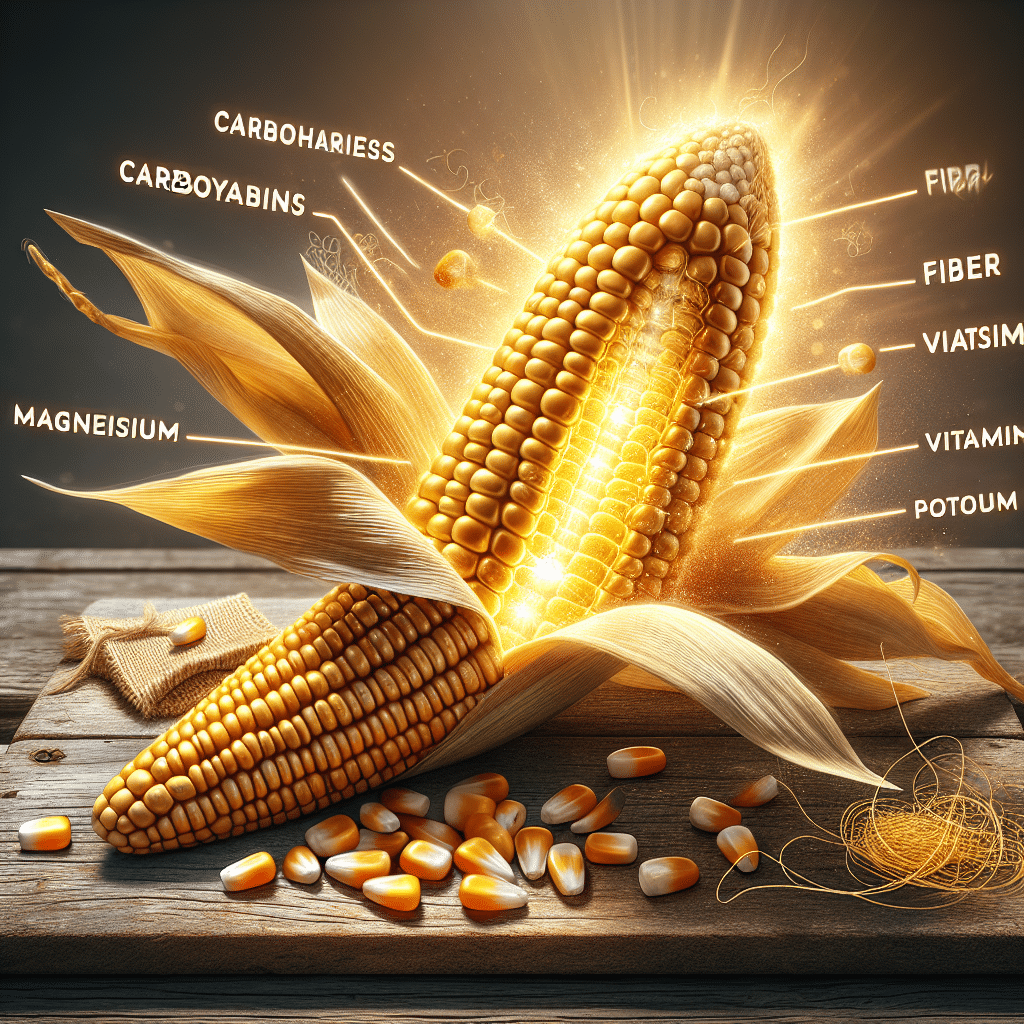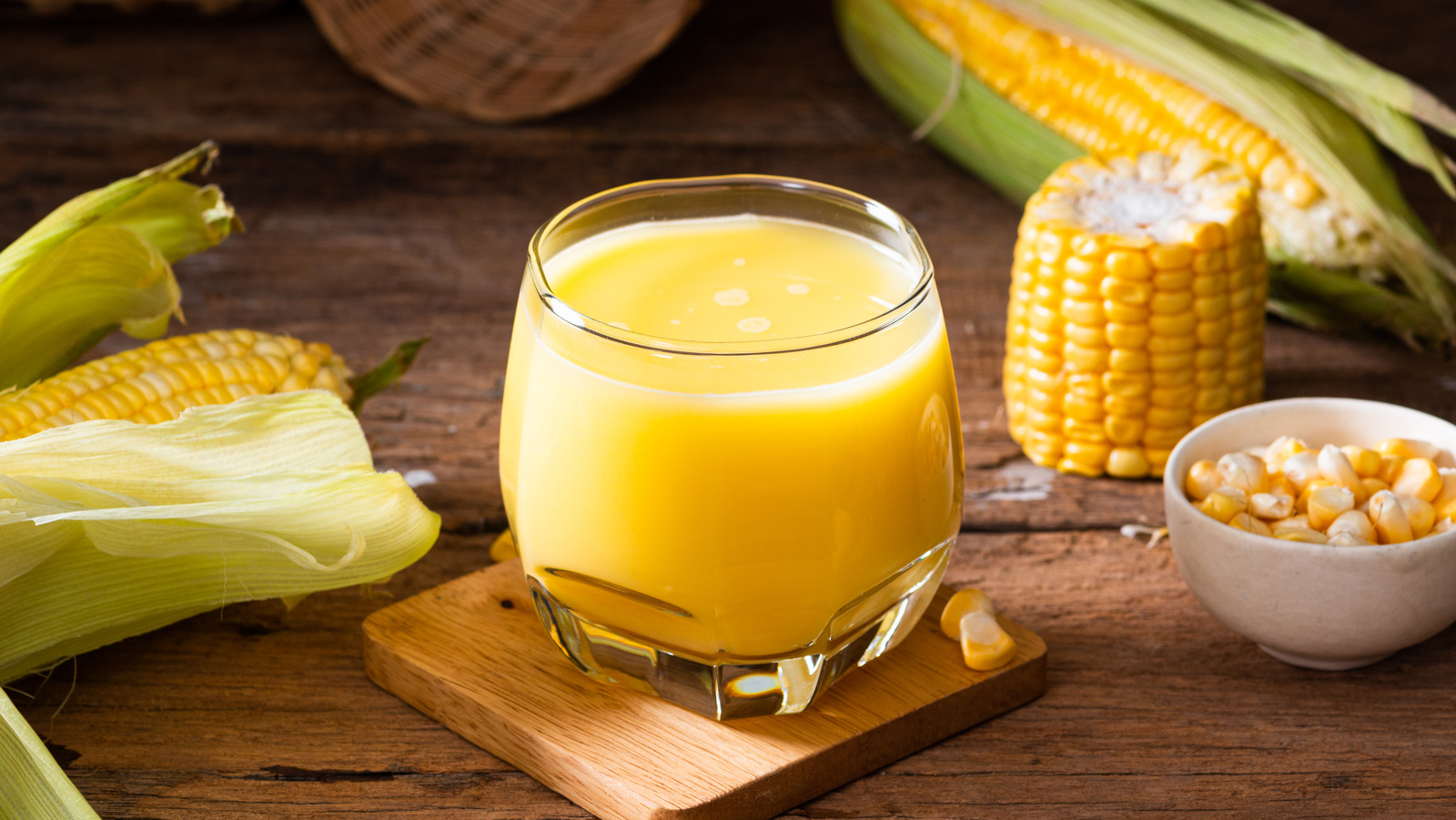Boosting Health with Corn Protein Peptide: A Nutritional Powerhouse
In the quest for natural and effective health supplements, corn protein peptide stands out as a unique powerhouse, offering a range of benefits that enhance wellness in many ways. Derived from corn, a staple crop known for its rich nutrient profile, corn protein peptide has been gaining popularity for its easily absorbable form and health-promoting properties.
What is Corn Protein Peptide?
Corn protein peptide is a hydrolyzed form of corn protein, meaning it's broken down into smaller peptides that are easier for the body to absorb. This makes it highly bioavailable, allowing for rapid assimilation and maximum benefit. Unlike traditional protein sources, corn protein peptide delivers a more concentrated dose of essential amino acids, particularly those that support muscle health, cellular repair, and overall vitality.
Peptides are short chains of amino acids, the building blocks of proteins. Corn peptides are extracted from corn protein through an enzymatic hydrolysis process. This process breaks proteins down into smaller chains of amino acids, which form peptides. These peptides have unique properties that can have a positive impact on our health.

Nutritional Profile of Corn Protein Peptide
1. Easy digestibility: The hydrolysed nature of CPP makes it easier to digest than intact proteins. People with sensitive stomachs or protein intolerance may find CPP as an alternative.
2. Amino acid profile: Corn protein peptide contains a balanced profile of essential amino acids, having high concentration levels of BCAAs, for muscle recovery and energy production.
3. Hypoallergenic: Unlike some other protein sources, like whey or soy, the likelihood of allergy with corn protein peptide is much lower, making it a safer choice for most people.
4. Vegetarian and Environmentally Friendly: Since CPP comes from plants, it supports the increasing demand for more sustainable and environmentally friendly nutritional resources. It is ideal for vegan, vegetarian, and ecologically concerned consumers.

Key Benefits of Corn Protein Peptides
Enhanced Muscle Recovery: Corn protein peptide is packed with amino acids, especially leucine, known to aid in muscle repair and recovery. For athletes and active individuals, this supplement can speed up recovery times, reduce muscle fatigue, and support endurance, making it ideal for post-workout routines.
Supports Heart Health: Rich in antioxidants and low in fat, corn protein peptide promotes cardiovascular health. It helps manage cholesterol levels by reducing bad cholesterol (LDL) and improving good cholesterol (HDL) balance, thus lowering the risk of heart disease.
Improves Digestibility and Nutrient Absorption: Being in peptide form, corn protein is gentler on the digestive system and is absorbed more readily, offering a great protein option for individuals with sensitivities to other protein sources. This makes it a perfect addition for those who need a highly digestible protein that won’t cause bloating or discomfort.
A Natural, Sustainable Protein Choice: Corn is widely cultivated and sustainable, making corn protein peptide an eco-friendly alternative to animal-based proteins. Choosing this plant-based option not only supports personal health but also contributes to environmental sustainability.
Skin and Cellular Health: Corn protein peptides contain antioxidant compounds that help fight free radicals, protecting cells from damage and supporting youthful, healthy skin. Incorporating corn protein peptide into your diet or supplement routine can assist with maintaining skin elasticity and overall cell health.

Who Can Benefit from Corn Protein Peptides?
This versatile protein supplement is ideal for everyone, from fitness enthusiasts to individuals seeking natural solutions for heart health and digestion. It’s particularly useful for those on a plant-based diet who want a clean, ethical protein source without sacrificing essential nutrients.
Athletes and Fitness Enthusiasts benefit from corn protein peptide as it supports improved performance and faster muscle recovery, thanks to its rich content of branched-chain amino acids (BCAAs). Seniors can use CPP to maintain muscle mass and prevent age-related health issues, as its bioavailable nature ensures efficient nutrient delivery.
For vegans and vegetarians, CPP serves as an excellent plant-based protein source, aligning with dietary preferences while meeting protein requirements. Finally, health-conscious individuals can rely on CPP to enhance immunity, support cardiovascular health, and promote overall well-being, making it a versatile addition to a balanced diet.

How Corn Protein Peptide Assists in Muscle Recovery and Growth?
Corn Protein Peptide (CPP) is a potent supplement for muscle recovery and growth due to the high content of amino acids, especially branched-chain amino acids - leucine, isoleucine, and valine. These are the essential amino acids that will repair your muscle tissue, initiate muscle protein synthesis, and enhance muscular growth, more so when taken post-exercise.
It being hydrolyzed, CPP gets absorbed into the blood very quickly. This ensures a quick transference of nutrients to the muscles, which further reduces recovery time and prevents muscle breakdown. The best post-workout supplement in CPP enables muscle recovery and rebuilding through its fast absorption rate.
It supports muscle maintenance in the older population by slowing down the rate of muscle loss, keeping protein synthesis active, and maintaining strength. CPP can also reduce muscle soreness and inflammation, further accelerating recovery and performance.
For maximum benefits, take CPP immediately after working out to promote muscle repair or as needed throughout the day for daily recovery. The athlete, sportsman, or even anyone focusing on muscle wellness can benefit from an easy incorporation of corn protein peptide in any nutrition plan.

How Corn Protein Peptide Can Help Manage Blood Sugar and Support Weight Loss?
Corn Protein Peptide (CPP) offers more than just muscle support; it also plays a role in managing blood sugar levels and supporting weight loss, thanks to its unique properties and nutritional profile.
1. Regulating Blood Sugar Levels
CPP may help stabilize blood sugar by improving insulin sensitivity. The peptides in corn protein have been shown to support glucose metabolism, reducing spikes and crashes in blood sugar. By promoting better insulin response, CPP can help prevent insulin resistance, a key factor in the development of type 2 diabetes. Regular consumption of CPP may contribute to more stable blood sugar levels, which is crucial for those looking to manage or prevent diabetes.
2. Supporting Weight Loss Through Increased Satiety
CPP is high in protein, which helps to increase feelings of fullness and reduce appetite. This can be especially beneficial for those looking to lose weight, as it helps control hunger and prevent overeating. Protein is known to have a higher thermic effect than fats or carbohydrates, meaning the body burns more calories digesting it. This contributes to a slightly higher metabolic rate, helping with fat burning.
3. Muscle Preservation During Weight Loss
During weight loss, it’s important to preserve lean muscle mass while burning fat. The amino acids in CPP, particularly branched-chain amino acids (BCAAs), help prevent muscle breakdown, which is often a concern during calorie-restricted diets. By maintaining muscle mass, the body’s metabolism remains elevated, aiding in more efficient fat loss.
4. Balancing Blood Sugar for Sustained Energy
Unlike refined carbohydrates, which cause rapid blood sugar spikes followed by crashes, CPP provides a steady release of amino acids and energy, helping maintain stable blood sugar levels throughout the day. This steady energy release helps reduce cravings for sugary foods and snacks, which can hinder weight loss efforts.

How to Use Corn Protein Peptide?
Corn protein peptide can be easily added to smoothies, shakes, or meals as a powder. Whether you’re enhancing your morning smoothie or post-workout drink, a small scoop goes a long way. Try incorporating it into your daily routine to experience the health-enhancing benefits of this unique protein!
1. Corn Gluten Meal: Add corn gluten powder to your smoothies, protein shakes or baked goods.
2. Corn Snacks: Look for snacks made from corn, such as cornflakes or popcorn, and enjoy the health benefits of corn peptides while satisfying your cravings.
3. Corn-based meals: Prepare corn-based dishes, such as tortillas, cornbread, or corn salad, to incorporate this healthy ingredient.

Where to Buy Corn Protein Peptide?
Discover the exceptional quality of Corn Protein Peptide from YANGGE BIOTECH INGREDIENTS, available with a complimentary sample at yanggebiotech.com. Renowned as an industry leader, YANGGE BIOTECH is dedicated to manufacturing and distributing premium-grade dietary supplement ingredients, delivering purity and potency with every product.
Not only does YANGGE BIOTECH serve health-conscious consumers directly, but it also partners with top brands across the food and supplement sectors, supplying raw, pure ingredients that meet the highest industry standards. Elevate your product offerings or personal wellness with our trusted ingredients—reach out to us today to place your order and experience the YANGGE difference.
Wrapping up, Corn protein peptides are an important addition to a healthy diet. With their antioxidant, anti-inflammatory and immune-boosting properties, they have many health benefits. By adding corn peptides to your meals, you can enhance your overall health and support your long-term health goals. So next time you’re at the grocery store, don’t forget to pick up some corn products and enjoy the benefits of this nutrient.
Why Choose Yangge Biotech for Corn Protein Peptides?
Yangge Biotech is your trusted source for premium Corn Protein Peptides. Here’s why:
Top-Quality Products: Yangge Biotech ensures the highest standards of purity and color consistency, meeting global regulatory standards for food, cosmetics, and textiles.
Sustainable and Ethical: The company is committed to eco-friendly sourcing and responsible agricultural practices, making it the go-to choice for businesses seeking a natural, sustainable colorant.
Customization: Whether you need powder, liquid, or concentrated forms, Yangge offers flexible solutions tailored to your needs.
Certified and Reliable: With certifications like GMP, ISO, and Kosher, you can trust the safety and quality of every batch of Carthamus Red.
Global Reach, Excellent Service: With a strong global presence and exceptional customer support, Yangge Biotech ensures a smooth, hassle-free experience from start to finish.
Discover the vibrant power of Corn Protein Peptides with Yangge Biotech – where top-notch quality, sustainability, and a customer-first approach come together to elevate your experience!
References:
Acharya, K. R., Sturrock, E. D., Riordan, J. F., & Ehlers, M. R. (2003). Ace revisited: A new target for structure-based drug design. Nature Reviews Drug Discovery, 2(11, 891–902. https://doi.org/10.1038/nrd1227
View
CASPubMedWeb of Science®Google ScholarAihara, K., Ishii, H., & Yoshida, M. (2009). Casein-derived tripeptide, Val-Pro-Pro (VPP), modulates monocyte adhesion to vascular endothelium. Journal of Atherosclerosis and Thrombosis, 16(16), 594–603. https://doi.org/10.5551/jat.729
View
CASPubMedWeb of Science®Google ScholarAlemán, A., Giménez, B., Pérez-Santin, E., Gómez-Guillén, M. C., & Montero, P. (2011). Contribution of Leu and Hyp residues to antioxidant and ACE-inhibitory activities of peptide sequences isolated from squid gelatin hydrolysate. Food Chemistry, 125(2), 334–341. https://doi.org/10.1016/j.foodchem.2010.08.058
View
CASWeb of Science®Google ScholarAluko, R. E. (2015). Antihypertensive peptides from food proteins. Annual Review of Food Science and Technology, 6(65), 235–262. https://doi.org/10.1146/annurev-food-022814-015520.
View
CASPubMedWeb of Science®Google ScholarAmiot, J., Germain, L., Turgeon, S., Lemay, M., Orysalam, C., & Auger, F. A. (2004). Peptides from milk protein hydrolysates to improve the growth of human keratinocytes in culture. International Dairy Journal, 14(7), 619–626. https://doi.org/10.1016/j.idairyj.2003.11.007
View
CASWeb of Science®Google ScholarAnanth, S., Karunakaran, S., Martin, P. M., Nagineni, C. N., Hooks, J. J., Smith, S. B., … Ganapathy, V. (2009). Functional identification of a novel transport system for endogenous and synthetic opioid peptides in the rabbit conjunctival epithelial cell line CJVE. Pharmaceutical Research, 26(5), 1226–1235. https://doi.org/10.1007/s11095-008-9709-x
View
CASPubMedWeb of Science®Google Scholar
Arooj, M., Thangapandian, S., John, S., Hwang, S., Park, J. K., & Lee, K. W. (2011). 3D QSAR pharmacophore modeling, in silico screening, and density functional theory (DFT) approaches for identification of human chymase inhibitors. International Journal of Molecular Sciences, 12(12),

